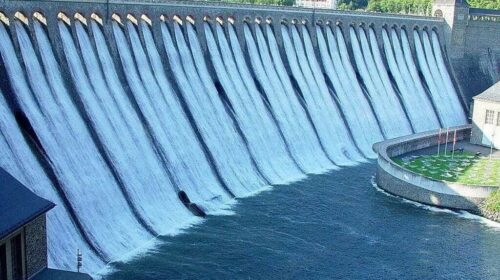The World Bank is to formally hand over to the Court of Arbitration (CoA) and Neutral Expert (NE) on November 21, 2022, the documents related to the dispute between Pakistan and India on the designs of controversial projects — 330 MW Kishenganga and 850MW Ratle Hydropower projects.
The expert teams of both the parties to the dispute, Pakistan and India, would attend the ‘Handover briefing by WB to the Court of Arbitration and Neutral Expert (NE)’ — the two forums available under the Indus Waters Treaty 1960 to resolve the dispute or the difference between the two nuclear countries. The handover meeting is to be held in Washington on November 21, 2022.
Pakistan’s delegation, headed by the secretary Water Resources Ministry and comprising Pakistan’s commissioner of Indus Waters and a top official of the Attorney General’s Office, will attend the handover briefing meeting. India’s team would also be present there, a senior official of the Law Division privy to the development told The News.
Once the World Bank hand overs the case about the dispute to CoA and Neutral Expert, the bank would no more be a part of either CoA or NE as its job is done. The World Bank has already constituted on the demand of Pakistan the Court of Arbitration comprising seven members — one chairman, two arbitrators each from parties to the dispute (Pakistan and India), a technical member and a legal member. Likewise, it has also formed a one-man Neutral Expert as was demanded by India. Both forums would state their proceedings simultaneously to resolve the issues concerning the disputed designs of both projects.
The World Bank on October 17 appointed Sean Murphy as chairman of the Court of Arbitration (CoA) and Michel Lino as the Neutral Expert. Pakistan has raised three objections on the design of Kishanganga project built on Jhelum river’s tributary saying that the pondage of the project is 7.5 million cubic meters which is excessive and it should be one million cubic meters. Pakistan also wants India to raise intake by up to 1-4 meters and also raise spillways up to nine meters high. And on the issue of the design of the Ratle Hydropower plant being constructed on the Chenab River, Islamabad raised four objections.
Pakistan wants India to maintain a free board at one meter whereas India wants to keep it at two meters. In addition, India wants to keep the pondage of 24 million cubic meters but Pakistan wants the pondage to be of eight million cubic meters. Pakistan also wants the intake of the project to be raised by up to 8.8 meters and its spillways should be raised by up to 20 meters.







